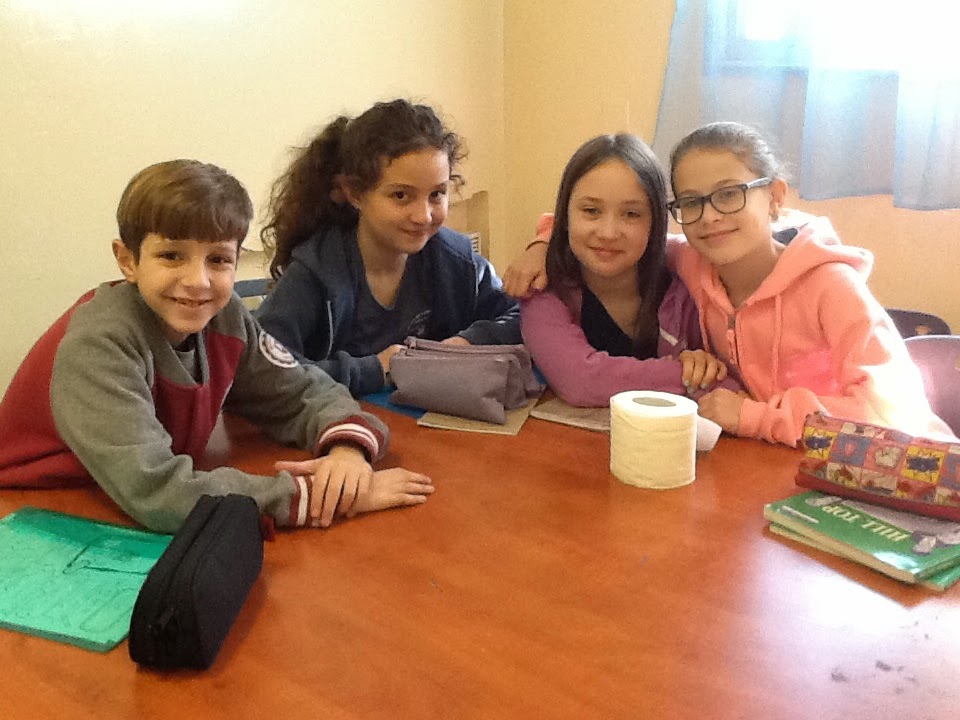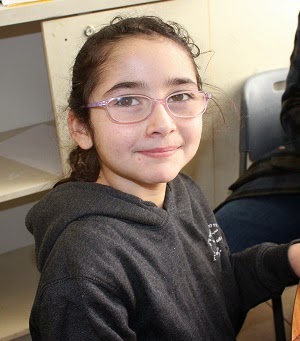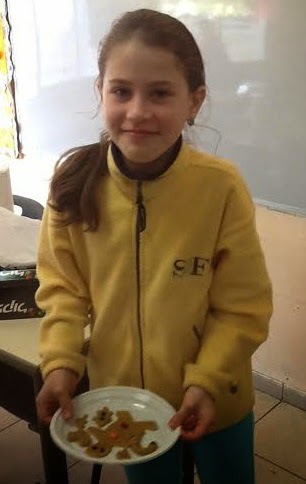"Tzedakah" is the Hebrew word for the acts that we
call "charity" in English: giving aid, assistance, and money to the
poor and needy or to other worthy causes. But the nature of tzedakah is very
different from the idea of charity.”(1)
We recently had a sweet example of Tzedakah from a group of
2nd graders in Eugene Oregon.
 |
| Cards from the States! |
The teacher from the Talmud Torah program had donated on
line after the arson attack at the Jerusalem School last November. In an envelope with another donation and handmade
cards from his class came a letter from the teacher who explained, “My class
collects Tzedakah at the start of every class session and we wanted to
contribute money toward the repair of the fire damage done to one of your
schools last month.”
We took the cards from his second grade class to our fourth
graders for their response (remember our kids start learning English in the 3rd
Grade) The English teacher and I talked
to them about the kids in the states and how they were learning Hebrew kind of
like they were learning English. We did
a quick geography lesson to find Oregon on the map, and then we had them read
the cards that the kids from the states had sent.
Next we talked about what to write back. We didn’t want to write the cards, but we
knew they’d need some help, so we brainstormed with the class and came up with
several broad statements, then set them loose to write their responses. Lynn, their teacher and I circulated, helping
with spelling and such. Two of the boys wanted
to send a joint response, so we worked on “I am” and “we are” transitions. Most of the students picked one or two of the
statements we’d come up with, added something of their own creation, then
decorated their cards with pictures and stickers!

(1) For the full article on Tzedakah, click here http://www.mechon-mamre.org/jewfaq/tzedakah.htm
(2) For more information on g’milut chasadim
 |
| because everyone knows there are cats in Israel |




































